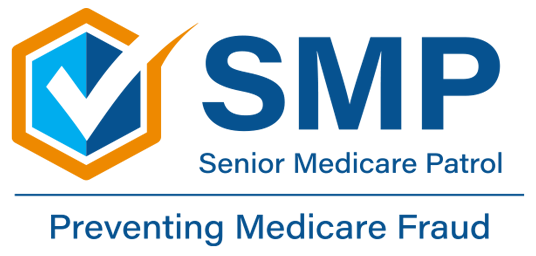
SMPs work at the grassroots level with the people directly affected by Medicare fraud, errors, and abuse. They increase public awareness about both the economic and health-related consequences, teaching beneficiaries how to prevent, detect, and report.
Prevent
Prevent health care fraud by protecting your medical identification cards and numbers.
- Treat your Medicare card and number like you would a credit card.
- Only share Medicare and other health care identification cards and numbers with trusted sources who need that information to serve you, such as your health care providers.
- This information should not be provided to a stranger who calls, visits, or approaches you in a public setting.
- Medicare already has your Medicare number. They will not call you to ask for it, and they certainly don’t need your bank account number. If you call 1-800-Medicare (1-800-633-4227) for assistance, they will ask for your Medicare number, however.
- Treat any offer of free services in exchange for your Medicare or health care identification number with caution.
- Rely on your doctors for medical advice and prescriptions, not advice or offers of medical services from unknown persons who call, visit, or approach you in public.
- Never sign a blank medical or insurance form.
- Always read and make sure you understand the content before you sign.
- Request a copy of a form or document you sign for your own records.
Detect
Prevention alone cannot stop all fraud, errors, and abuse. Detect potential problems by taking the following steps:
- Keep records of health care visits, services or equipment received, test results, etc.
- File copies of bills received from your doctor, hospital, pharmacist, supplier, or other health care provider.
- Save your Medicare Summary Notices (MSNs) and Explanations of Benefits (EOBs) and review them for accuracy.
- Compare the dates, providers, and services received, shown on MSNs and EOBs, to what is documented in your personal health care records.
- Beware of charges for services not received, duplicate charges, or services that were not ordered by your doctor.
- Ask questions of your provider, Medicare plan, or 1-800-Medicare when:
- You don’t understand the charges billed
- You don’t think you received the service
- You feel the service was unnecessary
- You were charged for the same thing twice
Report
In some cases, SMPs do more than educate. When Medicare beneficiaries are unable to act on their own behalf to address suspected Medicare fraud, errors, or abuse, the SMPs work with them, their family caregivers, and others to address the problems, and, if necessary, make referrals to outside organizations to intervene. SMPs educate beneficiaries to report suspected fraud, errors, or abuse immediately!
Here are steps SMPs recommend beneficiaries take to report their concerns:
- Call the health care provider. Call the provider or supplier first to question the charge. If it was a mistake, ask them to correct it.
- Call the company that paid the bill. If the provider or supplier can’t answer the question, contact the company that paid the bill. Their contact information can be found on your Medicare Summary Notice (MSN) or Explanation of Benefits (EOB).
- Contact the SMP. If you are not satisfied with the response you get from a provider, supplier, or billing company, you can contact your local SMP. The SMP helps beneficiaries understand the difference between suspected fraud, errors, or abuse. SMPs also assist beneficiaries in addressing suspected errors. If fraud or abuse is suspected, SMPs refer cases to the proper authorities for further investigation.
